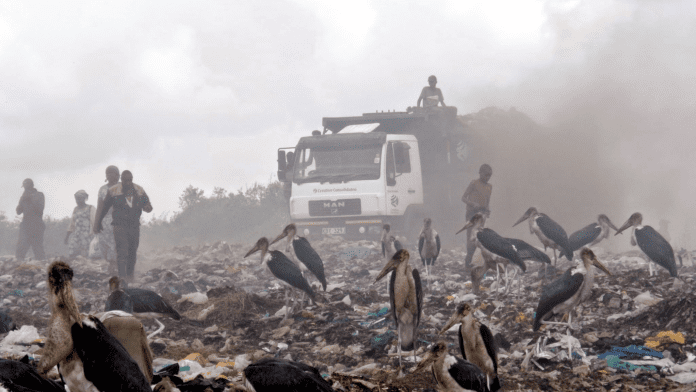
At least 2,500 people lose their lives annually in Nairobi due to illnesses linked to air pollution, Nairobi Governor Johnson Sakaja has revealed.
The pollution crisis is not only taking lives but also placing a significant financial strain on the county’s healthcare system. Estimates indicate that proactive measures could help the county save up to Sh24.8 billion over the next 15 years.
Sakaja, speaking during a global urban centers climate conference in Nairobi on Wednesday, emphasized the devastating impact of pollution, noting that it is a major contributor to respiratory diseases and other health complications that prevent residents from living quality lives.
“We estimate that at least 2,500 people die every year due to pollution-related illnesses. It is one of the leading causes of respiratory infections and other health conditions that continue to rob Nairobi residents of their well-being,” Sakaja stated.
To address the crisis, City Hall is modernizing its emissions tracking system to strengthen the county’s climate response strategies. Nairobi is currently updating its greenhouse gas inventory through a dedicated climate change unit. The inventory will help assess the effectiveness of current policies and guide future initiatives.
“Once the inventory is complete, we will have a clearer picture of Nairobi’s pollution sources and the progress being made toward reducing emissions. This will provide critical evidence to refine our climate action plan,” Sakaja explained.
A 2020 report by the Clean Air Fund on the state of global air quality linked over 5,000 premature deaths in Nairobi to air pollution-related illnesses. With the city experiencing rapid growth and continued reliance on motor transport, Sakaja warned that pollution levels will keep rising unless urgent interventions are put in place.
Other Climate Challenges
Besides air pollution, Nairobi also faces other climate-related challenges, including frequent flooding and pressure on infrastructure and essential services.
“We are implementing policies that will help tackle these environmental challenges head-on. The solutions we put in place today will shape the future of this city for generations,” Sakaja said.
The county is now integrating climate action into all its policies, programs, and development plans. Sakaja described the approach as “rewiring our policies and planning” to ensure climate concerns are addressed at every level.
The implementation of the Nairobi City County Climate Change Management Act of 2024 is already underway, providing a legal framework to address the county’s climate threats.
Nairobi has also joined the global Breathe Cities initiative, which aims to improve air quality and public health. The program, launched in September 2024, seeks to cut air pollution by 30 percent in participating cities by 2030. The initiative was established in June 2023 by Michael R. Bloomberg, the UN Secretary-General’s Special Envoy on Climate Ambition and Solutions, alongside London Mayor Sadiq Khan, who co-chairs C40 Cities.
Currently, Breathe Cities is active in 12 cities worldwide, including Nairobi.




![SHA Suspends Dozens of Health Facilities Over Alleged Fraud [LIST]](https://citymirror.ke/wp-content/uploads/2024/12/image-14-218x150.png)

